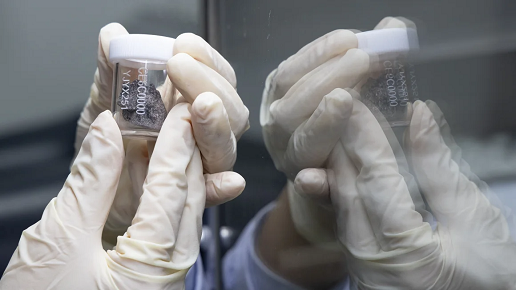The National Immigration Agency (NIA) Specialized Operation Brigades of Changhua County recently announced that 53 boxes of Vietnamese mooncakes were illegally brought into Taiwan and tested positive for the African swine fever. The products were seized and destroyed according to the law.
Many new immigrants, migrant workers, and foreign students rushed to buy mooncakes to celebrate the festival. Unfortunately, some of the goods may have been consumed before being seized by the NIA. NIA officer Pan Lin-yen潘琳燕 labeled the case relating to "second-generation new immigrants", and she is the only officer in the team fluent in Vietnamese.
0901.jpg)
NIA officer Pan helped discover the largest case of "smuggled mooncakes". (Photo / Provided by the NIA Specialized Operation Brigades Changhua County)
25-year old NIA officer Pan Lin-yen is a second-generation Vietnamese new immigrant born in Taiwan. She studied at National Chi Nan University (NCNU) and got in touch with her Vietnamese roots. She returned to her mother's hometown Ho Chi Minh City as an exchange student where she became fluent in Vietnamese. 2 years ago, Pan joined the Specialized Operation Brigades of the NIA Changhua County. Under the command of captain Huang I-kang 黃奕崗, Pan was able to find traces online of the largest case of seizing illegal Vietnamese mooncakes in Taiwan.
Read more: Taipei City ranks “4th in Asia” in the 2021 “Safe Cities Index”
0901更新.jpg)
Officer Pan is fluent in Vietnamese and she found evidence online to solve the case. (Photo / Provided by the NIA Specialized Operation Brigades Changhua County)
The woman suspected of smuggling the illegal goods is a Vietnamese new immigrant from Taoyuan. Her mother runs a Vietnamese store, but the physical store was closed due to the COVID-19 epidemic. Vietnamese people value and love to celebrate the Mid-Autumn Festival and the mooncakes were sold through Facebook and LINE.
The NIA Specialized Operation Brigades of Changhua County reminds business owners not to sell meal products of unknown origins. If there are violations, the items will be confiscated and destroyed. Additionally, the maximum penalty is 7 years imprisonment in accordance with Article 41 of the Statute for Prevention and Control of Infectious Animal Diseases with a maximum fine of NTD 3 million.

0901.jpg)





